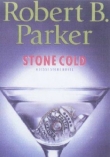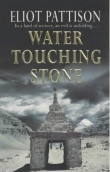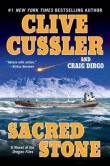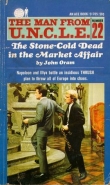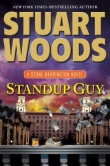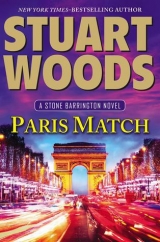
Текст книги "Paris Match"
Автор книги: Stuart Woods
Жанр:
Политические детективы
сообщить о нарушении
Текущая страница: 4 (всего у книги 15 страниц)
13
Mirabelle arrived at l’Arrington on time. “May I have a martini before we go?” she asked. “It will make the ride go faster.”
“Of course.” Stone went to the ice maker where he had stored the bottle of pre-mixed martinis and poured one into a crystal glass. He handed it to her and poured himself a Knob Creek.
“You should pack a toothbrush,” she said, sipping her drink. “We won’t be back tonight.”
“What sort of restaurant is this?” he asked.
“You’ll see.”
He went and threw some things into a small duffel—a favor of the hotel—and returned. She knocked off the last sip of her martini. “We’re off,” she said.
–
THEY GOT into the waiting van, Mirabelle spoke to the driver in rapid French, and he tapped an address into the GPS navigator. “Saves me having to give him directions,” she said, leaning back into the comfortable seat.
“Tell me where we’re going,” he said.
“No.” She looked out the window. “I promise you a good dinner and, if you play your cards right, as you Americans say, perhaps me.”
“What more could I ask?” he said. He watched the city change into forest. “We’re in the Bois de Boulogne, aren’t we?”
“Shut up.”
They had been driving for only half an hour when the van turned into a narrow, winding lane with thickly planted trees on each side. They stopped in front of an old cottage with a thatched roof and window boxes filled with flowers.
Mirabelle spoke to the driver again and got an argument back. “We’ll be at the other end of the lane,” he said in English.
She swore under her breath and got out of the van.
Stone grabbed his duffel and followed her. The van drove back down the lane. “What was the argument about?”
“He didn’t want to leave us alone. I told him we weren’t going back tonight, but it didn’t seem to matter to him.”
She opened the unlocked front door, and they walked into a cozy living room, where a small fire blazed in the hearth. There didn’t seem to be a right angle in the room, but somehow, it looked like home.
“Hallo!” a woman’s voice called from another room, then a plump, motherly woman came into the room and conducted a brief conversation with Mirabelle in their native tongue, and she left again.
“Was that your mother?” Stone asked.
“No, but she thinks she is. That was Marie, who has been the family cook for centuries.”
“So this is a family cottage?”
“It is my cottage, bought with my money. My family has never been here, just Marie, and she is sworn to secrecy. It is my hideaway.”
“Why do you need a hideaway?”
“My life is frenetic. Here is peace.” She went to a corner bar and came back with a martini and a glass of bourbon for Stone. They sipped.
“This is Knob Creek,” he said. “How did you know, and where did you get it?”
“I’ve seen you drink it, and I know a spirits shop that stocks it.”
“You are good to me,” he said, and kissed her.
“Tomorrow night I will take you to a grand restaurant.”
“Tomorrow night, I’m afraid, I have to have dinner at the residence of our ambassador, and I was asked to come alone.”
“Ah,” she said, “the odd man.”
“Exactly.”
“She wants you for herself.”
“No, she just wants an odd man. We met only today, in her office at the embassy.”
“You wait—you will find yourself seated next to her, and there will be hanky-panky.”
Stone laughed.
“This is an American expression, is it not?”
“It is a universal expression, I think.”
“You will see, the woman has a reputation. She consumes men.”
“I am shocked, shocked that you would speak of our top diplomat in France in such a way.”
“And you are easy,” she said. “Madame Flournoy will have her way with you.”
“You make me sound helpless.”
“She will render you helpless. She knows what she is doing.”
“Where do you hear these things?”
“I’ve told you—my clients tell me everything. The ambassador is my client. She has spent much money with me and had many fittings. Women need to talk when they are being fitted.”
“And it is men who have the reputation of talking about their affairs. Women are much worse.”
“I will give you that, because it has been my experience. She will have your virtue, you will see.”
Stone laughed loudly. “My virtue! Am I so maidenly?”
Mirabelle reached over and squeezed his crotch. “Before dessert, she will have this in her hand.”
“I tend to be a one-woman-at-a-time man,” he said.
“Why? You should have as many women as you want, who want you.”
“I tire easily.”
“Hah! You tire me, and that is not easy.”
Marie entered the room as Mirabelle withdrew her hand. “Dinner,” she said.
They got up and went into a kitchen, where a big La Cornue range rested against a wall. A table was set before another fireplace, and candles burned on the table.
“Bon soir,” Marie said, and left the room.
“Where is she going?” Stone asked.
“Home. She will come back tomorrow. I will serve us.” She pointed at a chair. “Sit.”
Stone sat. There was an open bottle of Château Palmer 1978, a favorite of Stone’s, on the table.
“Decant the wine, please.”
The cork had already been withdrawn. Stone stood, took the bottle and held it near one of the candles; as he poured, the neck of the bottle was backlit, and he could see when the dregs began to creep up the side of the bottle, so he could stop in time.
“Done,” he said.
She took their plates to the stove and served them from the pots, then sat down. “Did you taste the wine?”
Stone poured himself a little and tasted it.
“Yes? No?”
“We’ll drink it,” Stone said. He poured them both a glass and they tucked into a dinner of boeuf bourguignon.
–
AN HOUR LATER they were upstairs in a feather bed, sated and a little drunk.
“I will wear you out,” she said, “so there will be nothing left for the ambassador.”
And she did.
14
Stone was wakened by a puff of chilly air; he got up groggily and closed the bedroom window. He was halfway back to the bed before he realized that Mirabelle was not there. She was not in the bathroom, either. A weak light from below was showing on the stairs, so, curious, he walked to the top of the stairway and looked down. The light was coming from the kitchen, and he could hear Mirabelle’s voice, though he could not understand her French.
Still groggy from the dinner, the wine, and sleep, he tiptoed down the stairs and peeked into the kitchen. Mirabelle was standing there, naked, holding what appeared to be an antique shotgun, engraved, with exposed hammers. Both were cocked, and the shotgun was pointed at someone out of his view. He approached the door and peeked around the jamb. A man wearing black clothes and a black mask pulled over his head stood, his arms raised from his sides. Mirabelle was speaking to him in French that sounded hostile.
“What is going on?” Stone asked, stepping into the kitchen, and as he spoke he remembered that he, too, was naked. A low chuckle came from behind the man’s mask.
Mirabelle took her eyes off her captured prey and looked at Stone. “I have him,” she said.
Stone’s eyes flicked toward the man, and he saw him reach behind his back for something. “No!” Stone said to him, holding up a hand. Everything then switched to slow motion. The man’s hand emerged from behind him holding a semiautomatic pistol; Mirabelle turned toward him and pulled the shotgun trigger. The man’s hand and his gun parted company; the gun was thrown toward the fireplace by the centrifugal force of his swinging arm; his chest exploded and his body flew backward and landed, flat, on the wooden kitchen floor with a loud thump. Only then did Stone hear the blast of the shotgun.
“Merde!” Mirabelle spat, at no one in particular.
“Well, yes,” Stone said, recovering himself. He knew that much French. He was aware of the ridiculous appearance of two naked people, a shotgun, and what was rapidly becoming a corpse on the kitchen floor. Stone walked to her, took the shotgun from her hands, lowered the remaining cocked hammer, and set it on the kitchen table. He walked over to the man on the floor, pulled the mask from his head, and checked his pupils. Blown. He felt for a pulse at the carotid artery in the neck. None. “I think you’d better call the police,” he said. “Tell them to bring an ambulance and a medical examiner, as well as a crime-scene team.”
Mirabelle had begun to shake violently. Stone went to her and held her against him, and gradually she stopped trembling. She pulled away, then went and stood in front of the dying embers of the fire. “I can’t call the police,” she said.
Stone went and sat at the kitchen table. “You don’t really have a choice.”
“You don’t understand,” Mirabelle said. “If I call the police, my brother will be summoned as soon as they hear my name. He does not know about this cottage, and I don’t want him to.”
“The consequences of your brother’s knowing about this cottage are small compared to those of not summoning the police immediately,” Stone said. “Inevitably, your father will become involved, then someone at the police station or in his office will leak the story to someone in the press, and big headlines will be made. Very likely a criminal trial will result. Did you think we would just bury him in the Bois?”
She thought about it. “You are right,” she said finally.
“Go and look at him,” Stone said. “We have to know if you know him.”
She went and stood over the man, staring into his inert face. “No, I don’t know him.”
“Is there any reason why anyone might send an armed man to your house?”
She nodded. “For you.”
He nodded. “You have a point.” He walked out of the kitchen into the living room, checking everything. No ransacking. He found the front door open and scratches on the lock. Outside, on the doormat, was a canvas satchel. He returned to the kitchen. “Very likely he was a burglar—his tools are outside. But nothing has been disturbed. I had better make a phone call before you call the police.” He took her by the hand and led her upstairs. “Get dressed,” he said, then found his cell phone and called a number on his Favorites page.
One ring. “LaRose.”
“Rick, it’s Stone. I’m at the cottage of a woman named Mirabelle Chance.”
“The daughter of the prefect of police?”
“And the sister of his son, who is in charge of criminal investigations in Paris.”
“What’s happened?”
“She’s shot an apparent burglar, as he was preparing to shoot her. I’m a witness.”
“Where are you?”
“What is the address here?” he asked Mirabelle. She told him, and he told LaRose.
“Don’t call the police,” Rick said. “I’ll be there in half an hour.”
“Rick, we don’t want the corpse to get much colder, and it’s not a good idea to cover this up. We’ll call the police in fifteen minutes. You get here as fast as you can, and I’ll see what I can learn in the meantime.”
“I’m on my way.” He hung up.
“You stay here,” Stone said to Mirabelle, “while I go downstairs and do some things. In fifteen minutes call the police, not your brother. After the first call, then your brother. He’ll want everything to have been done by the book.”
She nodded, pulled a sweater over her head, then sat down on the bed.
“It might do you good to lie down until they get here, but don’t fall asleep. When they arrive, answer their questions truthfully.”
“All right.” She glanced at the bedside clock, then stretched out on the bed.
Stone pulled on some clothes and went downstairs. He turned on all the lights he could find in the room, including the one over the stove, then he looked under the kitchen sink and found some rubber dishwashing gloves and put them on. He walked over to the corpse and stood astride it, staring at the face. He hadn’t seen the man before. He appeared to be in his mid-to-late thirties. No scars. He pulled up the black sweatshirt and checked the abdomen. Flat, no scars or tattoos. He pushed back the lips and looked at the teeth. All of them were white, even, very handsome. He bent over and felt the pockets of his trousers: empty. He reached under the corpse and felt the hip pockets: still nothing. He found an empty holster on the belt in the small of the back. He looked at the man’s hands: no rings or tattoos. A cheap wristwatch on the right wrist. Nothing hanging around the neck. No ID of any kind. The man was a pro; the question was: What kind of a pro? Burglar? Assassin?
Stone returned the gloves to the cabinet under the sink, then went back upstairs. Mirabelle seemed to be sleeping. He stroked her pale face, and she jerked awake. “Time to call the police,” he said.
15
Rick LaRose, amazingly, got there first, wearing jeans and a sweater, looking interested, but unflustered. He took off his shoes and walked around the corpse in his stocking feet. “He’s a beauty, isn’t he? What have you learned?” he asked Stone.
“Caucasian male, mid-thirties, six feet, a hundred and eighty, very fit, either extensive and expensive dental work or the most perfect natural teeth you’ve ever seen. No identifying marks, tattoos, or scars. No ID, no indication of nationality, had a manicure recently, no possessions, except a pistol, a holster, an extra magazine, the tool bag on the doormat, and a cheap wristwatch. Wears the wristwatch on the right wrist but is right-handed.”
“Why do you think he’s right-handed?”
“Because that’s the hand that went for the gun.”
Rick took another good look at the corpse. “Well observed,” he said. “Part of you is still a cop.”
“Always will be.”
A claxon could be heard approaching from a distance, getting louder. Then it got softer.
“He’s missed the drive,” Stone said.
The claxon got louder again, then found the driveway and a car and an ambulance pulled into the forecourt, lights flashing.
“What an entrance!” Rick said, laughing. “It might be Inspector Clouseau!”
The gendarmes were quiet, quick, and all business.
Before they could speak Rick showed them an ID and jerked a thumb toward Stone and said something in French.
“And where, may I ask, is Mademoiselle Chance?” the officer asked in perfect English.
“Upstairs,” Stone replied. “I’ll get her.”
“If you please.”
Stone went upstairs; Mirabelle was asleep again. He woke her gently. “The police are here.” She sat up and rubbed her eyes. “Merde,” she said. That seemed to be her opinion of the whole business.
“Remember, tell them the truth.” He took her hand and led her down the stairs to the kitchen.
The officer switched to French, and Stone didn’t understand anything for twenty minutes. He hoped she was telling the truth.
Then the room got very quiet, and everyone turned toward the door. Stone followed their gaze. A man stood in the kitchen doorway: he was tall, had a gray crew cut, and was wearing a black leather trench coat. He lacked only an eye patch and a dueling scar to be good casting for a B-movie Gestapo agent. “Allo, Rick,” he said. “How does it go?” His voice was calm and uninflected.
Rick shrugged. “It goes.”
He walked over and looked at the corpse. “And what guest do we have here?”
His officer responded with a stream of French. The man stuck to English, an apparent courtesy to Rick. “Do you believe this to be self-defense?” he asked his officer. “Or do we have murder?” The man shrugged, as if the decision were not his to make. The man walked over to the table and looked at the shotgun. “My grandfather’s,” he said. He walked over to Mirabelle, took her by the arms, and kissed her on the forehead. “Are you all right, ma petite?” She nodded. “Is what my officer said the true thing?” She nodded again.
He walked over to where Stone sat.
“Jacques,” Rick said, “this is Stone Barrington, an American visiting Paris and a prominent New York attorney. Stone, this is Prefect Jacques Chance.”
Chance did not offer his hand. “What are you doing in this house?” he asked.
“I was a guest for dinner . . . and I fell asleep.”
Chance managed a tiny smile. “And do you concur in what my sister has told the police?”
“I do,” Stone said.
“Then you understand French.”
“I was watching. Language was unnecessary.”
The little smile again. “Of course. Mr. Barrington, did you shoot this man?”
“No!” Mirabelle said quickly.
“I was not aware that there was a shotgun in the house,” Stone said. “I saw the man produce a gun. After that he was shot.”
“What were you doing, Mr. Barrington, when the man was shot?”
“I was standing in the doorway, there.” Stone pointed.
Chance turned to LaRose. “And were you watching, too, Rick?”
“No, Jacques, I arrived after the fact.”
“And what brought you here?”
“Stone is a friend.”
“So he called his friend, before he called the police.”
“I called the police,” Mirabelle said.
Chance sighed deeply. “So . . . everyone has the story straight. How very convenient.”
Stone spoke up. “It’s easy when it’s the truth.”
The prefect’s cell phone rang; he answered it and spoke for half a minute, then hung up. “A stolen Fiat 500 was found on a road behind the house. It was an Abarth, so he liked his cars sporty. He walked through the Bois to get here, apparently. Perhaps we will know more when his fingerprints and DNA are run. Anything else from anyone?” He looked around the room, but no one spoke. “Then I bid you all bonne nuit.” He turned and walked toward the door. “I want the shotgun back in this house after it has been properly examined,” he said to his officer as he passed, then he was gone.
The police loaded the corpse on a gurney and took it away. The officer gave them a little salute then followed it.
Stone noticed that there was very little blood left at the scene.
“Stone,” Rick said, “your van awaits in the forecourt. I found it at the end of the drive. My men were asleep.”
“I had dismissed them,” Stone said.
“Then I won’t have them shot.”
“That’s magnanimous of you, Rick.”
“It is, isn’t it?” Rick looked pleased with himself. “All right, everybody, let’s all get some sleep.” He gave them a little salute and left the house.
Stone took Mirabelle in his arms. “I’m glad that’s over,” he said.
“It’s not over,” she replied.
16
Mirabelle would not go upstairs until she had scrubbed the few flecks of blood from the floor and kitchen cabinets. “We will not shock Marie,” she explained.
She fell asleep immediately, but Stone did not. Over and over he tried to explain the night’s events to himself but could not. There were too many possibilities. As they were having a breakfast of eggs scrambled by Mirabelle, Rick LaRose called.
“Something Jacques and his boys didn’t bother to tell us last night: the bag on the doorstep contained a few tools, but it also contained a length of rope, a black hood with no eyeholes, and a roll of duct tape. I don’t think I’ve ever encountered duct tape in Paris. It’s an American thing.”
“So what are you thinking?” Stone asked. He didn’t say it himself, because he didn’t want Mirabelle to hear.
“He may have come to kidnap somebody,” Rick replied. “I suppose he was strong enough to throw you over his shoulder.”
“No,” Stone said.
“Okay, he would have made you walk to his car, blindfolded.”
“Perhaps.”
“Easier to deal with her, huh?”
“Perhaps.”
“I think I’d better do some looking into Mademoiselle Chance,” Rick said.
“Why not?”
“I’ll get back to you when I know more.”
“Do that.” He hung up.
“Was that your Rick?”
“Yes.”
“What did he want?”
“He called to say he didn’t know anything.”
“Come now.”
“Everybody’s just guessing, even your brother. Who’s next, your father?”
“I don’t think Jacques will discuss it with my father.”
“He seemed more concerned about the shotgun than anything else, except me.”
“You answered him well. You told him we were none of his business. Jacques would have appreciated your subtlety. I would have been blunt.”
“We could still make the papers, but I think the policemen were too afraid of your brother to blab, so maybe not.”
“Quiet intimidation is Jacques’s, how do you say . . . ?”
“Stock-in-trade?”
“Yes, stock-in-trade.”
“Mirabelle, do you have any enemies?”
“An old lover or two, perhaps,” she said, “or one of their girlfriends. I don’t think anyone is angry enough with me to send an assassin. What would be their complaint, an ill-fitting dress? I think it is more likely your Russians.”
“You could be right.”
“I am worried about you, not me.”
“Thank you,” Stone said. “Try not to worry at all. What did you mean last night when you said this wasn’t over?”
“Nothing in particular. It is just a pattern in my life that when some event occurs, it always seems to be followed by other, related events. I’ve come to expect it.”
“It’s a pessimistic outlook.”
“Then perhaps I am a pessimist.” She looked at her watch. “I must go to work. Will you drop me there?”
“Of course. My chariot awaits.”
–
STONE HAD NO TROUBLE falling asleep again in his own bed at l’Arrington. He awoke in time to make his board meeting, which included a tour of the hotel to inspect the premises. He thought Marcel’s people had done a fine job of finishing their work on time. The hotel was beginning to look like what it was supposed to be.
–
LATE IN THE AFTERNOON, Rick called. “Your alleged kidnapper’s corpse did not yield much,” he said. “The man has never been arrested in Europe, his prints didn’t ring any country’s bell, and his DNA showed him to be of Western European origins, which could apply to half the population of the United States, as well as Europe, but that may indicate that he’s not Russian. Oh, and his beautiful teeth were his own. All in all, the man’s a cipher.”
“Swell.”
“By the way, the ambassador says she forgot to tell you that dinner tonight is black tie.”
“Thanks for telling me.”
“See ya.” Rick hung up.
Nobody tried to kill or kidnap him that day, for which Stone was grateful.

